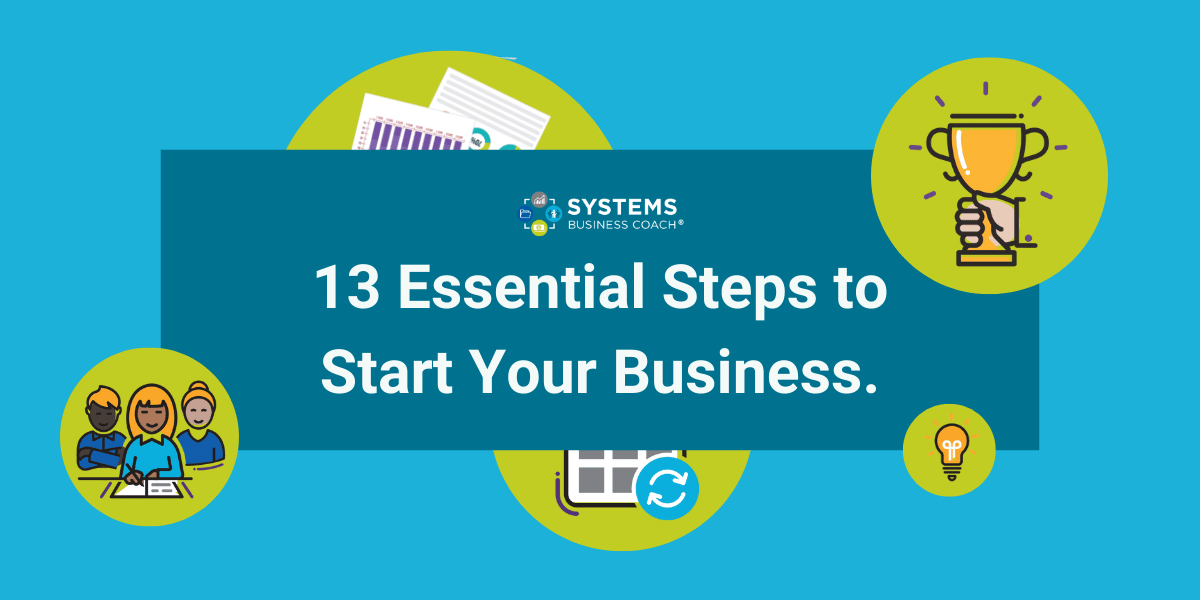It’s official! You’re ready to start a business. It’s exciting to dive right in— to share your ideas, secure your first client, and cash in on your first sale. Yet in this whirlwind of potential, the administrative steps to starting a business often get left out. This creates a domino effect that eventually turns your business into a disorganized and chaotic trap.
To avoid this, you can focus on registering, researching and establishing your business in your local region. This includes working with governments, banks, and accountants to set up an administrative foundation for your business. Here are the steps to start a business:
Steps to starting a business
By following these steps you establish credibility and authority as a company, you can access more funding opportunities, and you’ll save money during tax time.
1. Choose your business name
You can choose a name that is unique and related to your business.
A good formula for choosing a name is “unique identifier + business type/service”.
A unique identifier could be a name, a geographical location, an acronym or a made-up word. Your business type would be the nature of your business ie. Hair Salon, Construction, Cleaning
Here are a few examples:
- Harry’s Hair
- Mungo Smoothies
- East Vancouver Cleaners
2. Register your business
Once you have your name, you will want to register it with your local and federal governments. How to do this varies from region to region. When you register your business, consider whether you will need any trademark registration as well.
3. Decide on a business structure
What business structure is best for your business? The options are:
- Sole Proprietorship
- Partnership
- Limited Liability Company (LLC)
- Cooperatives
- Corporations
You can learn more about these business structures here. Try to consult with your accountant before deciding.

4. Do market research
A great business idea is made even better when the owner does market research. Sometimes what we think will work won’t, and sometimes we find even better ideas along the way!
Consider researching:
- Industry trends
- Political, economic, social, technological, environmental, and legal factors
- Financials
- Market trends
- Competitors
You may want to talk to others in your industry sector to learn more about what you are getting into! Your business bank manager, future landlord, coach, mentors, and even competitors will be generous with their knowledge.
5. Write a business plan
As an entrepreneur, your business plan is your most important business document. Your plan is the best way to share your goals and secure financing. A well-written plan shares your story, drive, passion, and tells the world that you are serious and committed to making your dream real.
Want to know what to include in your business plan? Click here to read more.
6. Secure your online presence
Even if you aren’t sure what your website will look like or what social media platforms you want to be on, we recommend securing your URL and social media handles right away.
If your online identity matches your company name, your business will be easier to find.
In addition to your URL, we suggest reserving your name on:
- Google My Business
You can check if your name is available across multiple platforms by entering it into Name Checker.
7. Open a business bank account
It’s essential to separate your business and personal account. This will help you keep better track of your business finances and reduce stress on managing family finances.
Check multiple banks to see what options they have for small business owners. Be sure to open a chequing account and have a savings account to put your taxes in!

8. Make a tax plan
Make taxes stress-free by planning ahead. Determine your local, provincial (state) and federal taxes.
9. Choose a bookkeeping system
The sooner you start tracking your finances, the sooner you can budget, reduce costs and increase revenue.
There are online programs that can sync with your bank accounts, such as Quickbooks or Wave. Which one works best for your business?
10. Apply for licences and permits
You will likely need to register your business with the municipal government where your business is located.
The easiest way to find out what licences and permits you need is to visit the website of your local city hall or go there in person.
11. Get insured
Every business has industry-specific needs. For example, there is a different type of insurance for those who are at risk of giving “bad advice” that may result in an injury or loss (ex. physician, coach) vs. a storefront that needs insurance in case someone trips on their doorstep.
Determine what type of insurance you will need. Often insurance companies will give free assessments. Reach out to a local insurance company near you!
12. Create a personal budget plan
When it comes to business expenses, a huge consideration is the amount of money that you personally need to make a decent living. How much money do you and your family need every day to be comfortable? A personal budget plan ensures that you are able to pay yourself at least the amount you would pay someone else to do the same job.
13. Go for it!
When you follow these steps to start your business, you create a structure that allows for prosperity and freedom. It may feel overwhelming right now to complete all of these tasks. Take it one step at a time and don’t be afraid to reach out for help. You don’t have to do this alone!
I can’t wait to see where you take your business.
Until next time, enjoy your Entrepreneurial Journey!












